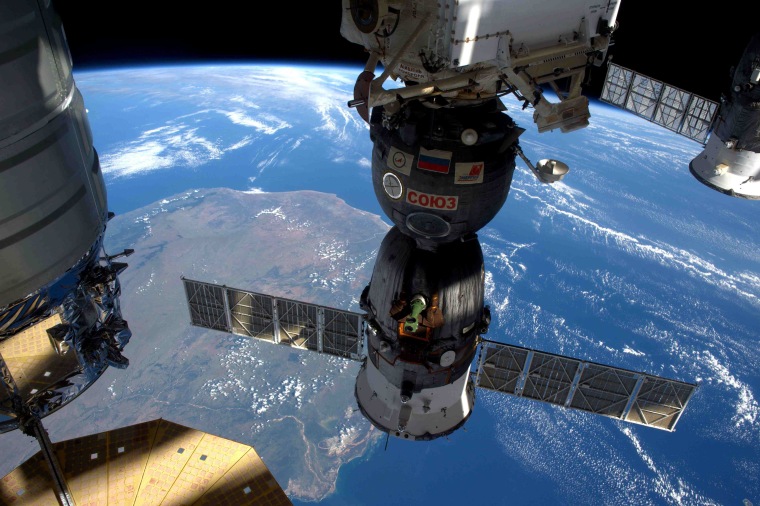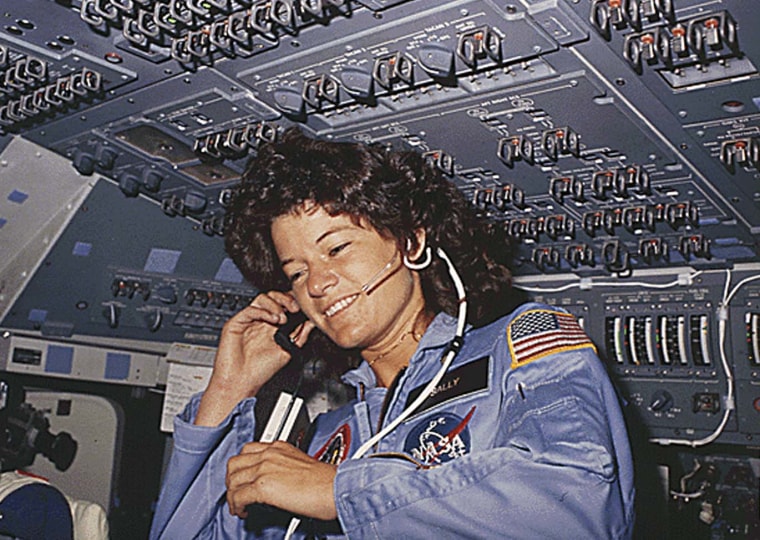MAINZ, Germany — A $30-million crowdfunding campaign is being launched to send more women into space.

Organizers are aiming to get Germany's first female astronaut to the International Space Station or another craft in 2020 to conduct a week of experiments as part of a commercial mission. The “Die Astronautin” project has already received more than 400 applications.
“We thought that after 11 German men, it’s time for a woman to fly into space,” Claudia Kessler, the woman behind the project, told NBC News on Tuesday.
Kessler is the chief executive of HE Space, a personnel-recruiting company in the space sector.
She dreamed of traveling to space herself after watching the moon landing on TV in 1969 aged four.
“I never thought I’d be over 50 years old and that there still hasn’t been a German female astronaut,” Kessler added.
In 1963, Valentina Tereshkova became the first woman in space piloting the Vostok 6 capsule for the Soviet Union. Dozens followed since, including American Sally Ride and others from countries including Canada, China, France, Italy and Japan.

“We were always told there weren’t enough candidates,” Kessler said, speaking of Germany. “We want to disprove that.”
She said the project had already narrowed its list of applicants down to about 120 women including fighter pilots, engineers and researchers who will undergo further medical and psychological testing.
“Among the candidates are many that are suitable,” Kessler said.
She added that crowdfunding will being early next year. Corporate sponsors are also being sought.
A finalist will be chosen in 2017.